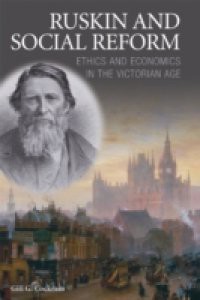In the first book to analyse the form and influence of Ruskin's social theory, Gill Cockram looks at Ruskin's significant contribution to social and intellectual thought in the late 19th and early 20th centuries. In a field often overlooked by 19th century historians, 'Ruskin and Social Reform' clarifies for the first time how Ruskin's social theory was disseminated to a much wider readership than was evident in the mid-nineteenth century and how it was that Ruskin achieved great prominence as a social philosopher. _x000D__x000D_Cockram examines the chronological development of Ruskin's thought, from initial unfavourable reviews of 'Unto This Last' in 1860, to his rise among the new liberals and then the socialists as a philosopher for the new age. By the beginning of the 20th century Ruskin had achieved great prominence as a thinker amongst the early Independent Labour Party supporters._x000D__x000D_Cockram's text restores Ruskin to his place in the Victorian firmament as a social philosopher and establishes the extent of his influence among the nascent labour movement. It was the support of a thinker as original and as unconventional as Ruskin that helped to challenge the laissez-faire conformities of classical economics and launched the quest to find a more ethical and humane basis for social policy-making. Ruskin and Social Reform is required reading for students of political thought and Victorian society, as well as economists and economic Historians who are critical of the formal assumptions of economic theory. _x000D_

